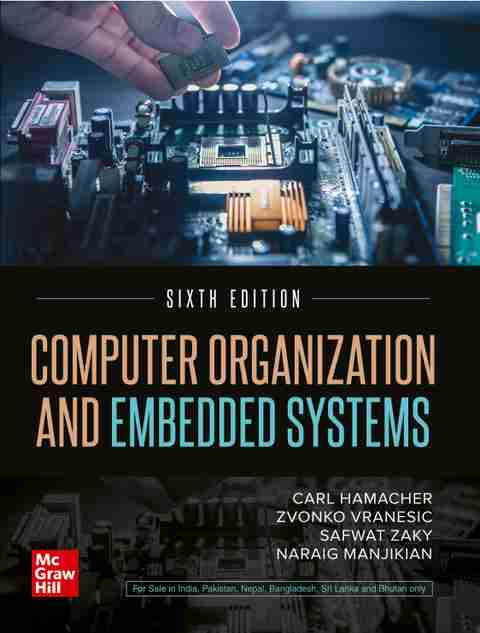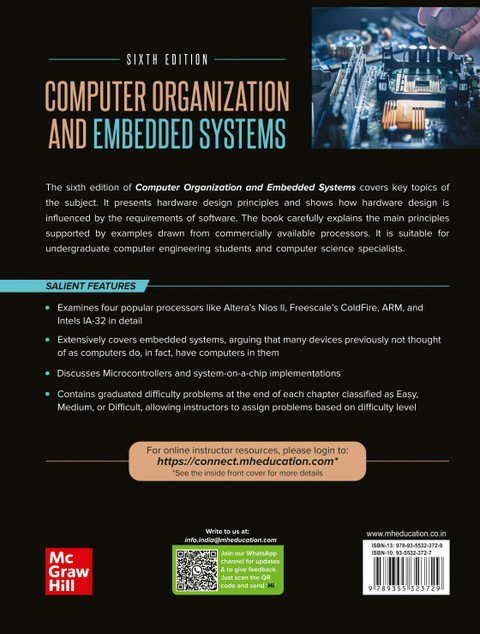Computer Organization and Embedded Systems | 6th Edition
Mcgraw Hill
Computer Organization and Embedded Systems | 6th Edition (Paperba...
more
Buy at ₹769
Apply offers for maximum savings
Apply offers for maximum savings!
Product highlights
1 Book
Title
Computer Organization and Embedded Systems | 6th Edition
Publication Year
2023 january
Number of Pages
736
Product Form
Paperback
Publisher
McGraw Hill
Source ISBN
9789355323729
ISBN13
9789355323729
All details
Features, description and more
Specifications
Description
Manufacturer info
Show More
4.4
Very Good
based on 11 ratings by
Verified Buyers
Questions and Answers
Find answers to commonly asked questions
Notify Me
Hang on, loading content










